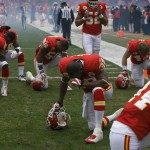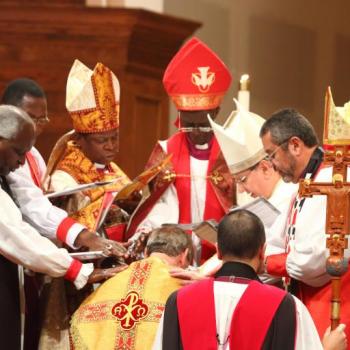So here I am reading through the scriptural pairings for January that come from Max Lucado’s Grace for the Moment Daily Bible and struggling to find the reasons that the editors or Max decided on combining these texts. For instance, one day I read from Matthew 5 Jesus’ instruction about not swearing oaths “in the name of heaven because heaven is God’s throne.” Then the next day I read about the mighty warrior Abram (an image that many Bible readers forget) taking an oath in the name of “the God Most High, who made heaven and earth” (Gen 14:22). When I read the brief comments supplied by Pastor Lucado I am left scratching my head:
Anxiety is an expensive habit. Of course, it might be worth the cost if it worked. But it doesn’t. Our frets are futile. Worry has never brightened a day, solved a problem, or cured a disease.
Neither has a little platitude like this helped a reader of Scripture make sense of the vast variety of instruction he or she finds when jumping around in holy writ. It was this apparent jumble of texts in the Bible that led H. L. Mencken (who died on this day in 1956) to write:
The same priest who is himself a celibate insists that his parishioners shall be fecund up to the limit of physiological endurance; the same Bible which teaches that marriage is only a desperate alternative to burning is also cited to prove that it is made in Heaven. . . . (Treatise on the Gods, 101)
The remedy may be a pastor whose duty it is to study and explain the word of God to people who may revere it and read it daily but also need help from those officers God appointed to preach and teach the word. John Calvin may be the very fellow to harmonize Gen 14 and Matt 5 on swearing:
Christ, therefore, meant nothing more than this, that all oaths are unlawful, which in any way abuse and profane the sacred name of God, for which they ought to have had the effect of producing a deeper reverence.
Calvin could be wrong, but I’d rather read the Bible with him than alone the way Mencken did (as much as I admire him).












